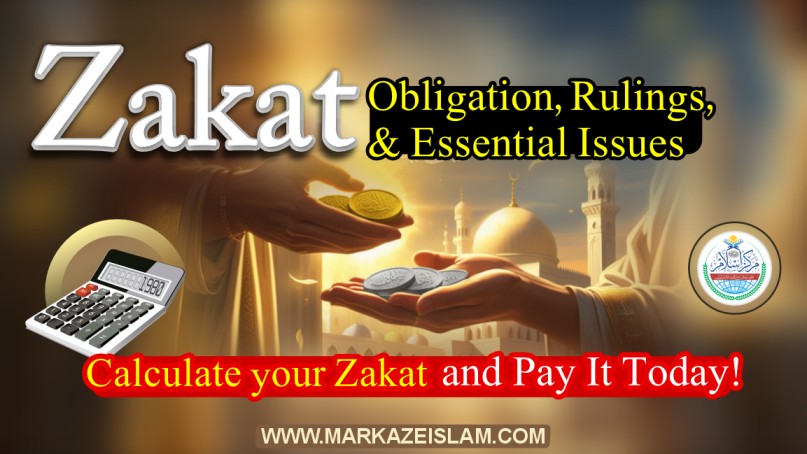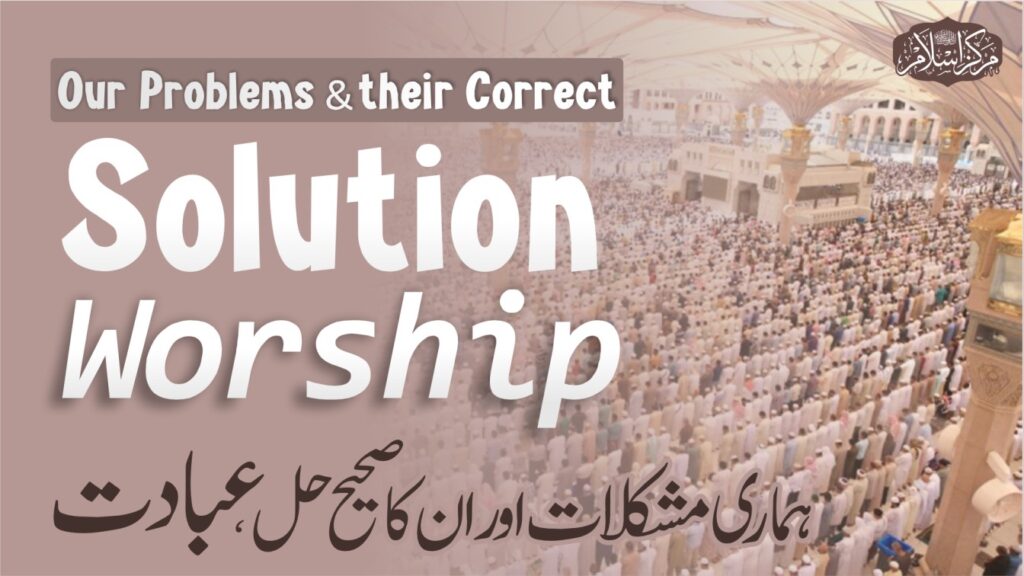Zakat is one of the fundamental pillars of Islam, and denying its obligation amounts to disbelief. It is not merely a financial duty but also a test of faith. In today’s world, where people are blindly chasing wealth, paying Zakat has become a burden for many. The truth is that those who neglect Zakat deprive their wealth of blessings and expose themselves to severe punishment in the Hereafter. This blog will comprehensively explain all the essential aspects of Zakat, leaving no room for excuses.
Table of Contents
Definition of Zakat
Zakat refers to the portion of wealth that is given to a needy Muslim in accordance with Islamic injunctions, solely for the pleasure of Allah. While giving Zakat, it is essential that the giver harbors no intention of personal benefit in any form; rather, it should be regarded as an act of worship.
Reference: (Durr-e-Mukhtar, Kitab al-Zakat, Vol. 3, pp. 204-206)
Obligation of Zakat
Zakat was made obligatory in the 2nd year of Hijrah, prior to the commandment of fasting. It is among the foundational injunctions of Islam that were mandated upon Muslims from the very beginning. Anyone who denies the obligation of Zakat is deemed outside the fold of Islam, as its command has been explicitly mentioned in the Quran.
Reference: (Fatawa Hindiyyah, Kitab al-Zakat, Vol. 1, p. 170)
Essential Conditions for the Obligation of Zakat
Zakat is obligatory upon every Muslim who meets the following conditions:
- Owns wealth that reaches the Nisab (the minimum threshold for Zakat eligibility).
- The wealth is productive (i.e., capable of growth, such as trade assets).
- Has full ownership and possession of the wealth.
- The wealth is in excess of basic needs (i.e., beyond essential living expenses).
- Does not have a debt that reduces the wealth below the Nisab.
- A lunar year (Hijri year) has passed over the wealth.
Reference: (Bahar-e-Shariat, Vol. 1, Part 5, pp. 875-884)
Clarification on Being an Owner of Nisab
A person is considered an owner of Nisab if they possess:
- 7.5 tolas (87.48 grams) of gold, or
- 52.5 tolas (612.36 grams) of silver, or
- Cash or trade goods equivalent to the value of Nisab.
Reference: (Bahar-e-Shariat, Vol. 1, Part 5, pp. 902-903)
Note:
If a person possesses a combination of gold, silver, currency, and trade goods, their collective value will be considered when calculating Nisab, and Zakat will be determined accordingly.
On What Assets Is Zakat Obligatory?
Zakat is obligatory on the following three types of wealth:
- Gold, silver, and currency notes
- Trade goods (items purchased with the intention of resale)
- Grazing livestock (animals that spend most of the year grazing freely in pastures)
Reference: (Fatawa Hindiyyah, Kitab al-Zakat, Vol. 1, p. 174)
Is Zakat Obligatory on Worn Jewelry?
Yes!
Many people believe that if gold is worn, Zakat is not required on it, but this is incorrect. Zakat is obligatory on gold and silver jewelry, whether it is in use or not.
Reference: (Durr-e-Mukhtar, Vol. 3, p. 270)
Zakat on Rented Shops and Houses
No Zakat is due on the shop itself, but if the rental income reaches the Nisab, Zakat becomes obligatory.
Similarly, no Zakat is due on a rented house, but Zakat must be paid on its rental income if it meets the Nisab threshold.
Reference: (Fatawa Rizviyah, Vol. 10, p. 161)
The Matter of Intention in Zakat
Intention (Niyyah) is essential for the valid payment of Zakat. If Zakat is given without making an intention, it will not be considered fulfilled.
Reference: (Durr-e-Mukhtar, Kitab al-Zakat, Vol. 3, p. 222)
Question: What if someone forgets to make an intention while giving Zakat?
Answer: If the intention was made beforehand, Zakat will be considered paid. However, if there was no prior intention and the wealth has already left the giver’s possession, it will not be counted as Zakat but as a general charity.
Reference: (Durr-e-Mukhtar, Vol. 3, p. 224)
Who Cannot Receive Zakat?
It is not permissible to give Zakat to the following individuals, even if they are poor:
- Banu Hashim (The descendants of the Prophet ﷺ, i.e., Sayyids)
- Parents and grandparents (Mother, father, grandfather, grandmother)
- Children and grandchildren (Sons, daughters, grandsons, granddaughters)
- Husband and wife (They cannot give Zakat to each other)
Reference: (Durr-e-Mukhtar, Vol. 3, pp. 344-350)
Giving Zakat to a Madrasa
It is permissible to give Zakat to a madrasa, but with the condition that the funds are given to a needy student as their personal possession. Using Zakat funds for madrasa construction or staff salaries is not allowed.
Reference: (Fatawa Rizviyah, Vol. 10, p. 254)
The Best Way to Give Zakat
- Zakat should be given directly to a needy person, ensuring they become its full owner.
- If given to a madrasa, orphanage, or any charity, it is essential that they transfer ownership to a deserving recipient.
- Zakat can be given in installments, but once it becomes obligatory, it should be paid without delay.
Reference: (Fatawa Rizviyah, Vol. 10, p. 75)
Islamic Ruling on Zakat Deducted by Banks
If a bank deducts Zakat from your wealth, it does not fulfill your Zakat obligation, because the deducted amount is often not given to a deserving recipient in a way that grants them full ownership.
Reference: (Waqaar al-Fatawa, Vol. 2, p. 414)
Conclusion
Zakat is not a voluntary act but a divine obligation, and delaying its payment is a grave sin. Those who fail to give Zakat will witness the destruction of their wealth in this world and face severe punishment in the Hereafter. Therefore, it is essential to learn and understand the rulings of Zakat and ensure its timely payment.
Remember! Giving Zakat does not decrease wealth; rather, it purifies and blesses it.
Reference: (Durr-e-Mukhtar, Kitab al-Zakat, Vol. 3, p. 203)
Calculate your Zakat and pay it today!




